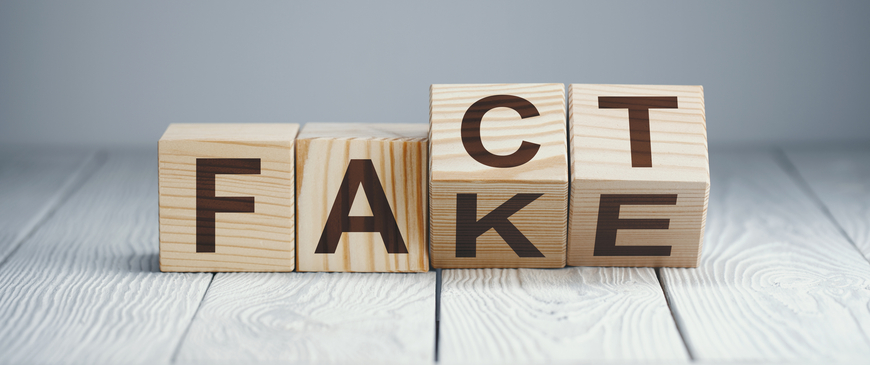
What is Europe doing to fight disinformation?
Focusing on the most blatant disinformation and helping target audiences understand the difference between real and fake news is the best way to fight disinformation.
Using misleading information or even outright lies for electoral or geopolitical gains is not new. But the internet has made it possible to spread fake news instantaneously to thousands if not millions of users. This has the potential to alter the outcome of democratic processes: easily shareable social media content may do more to shape some people’s political opinions than mainstream media reports. But the line between suppressing freedom of speech and shutting down disinformation campaigns is thin. To fight back, the EU needs not only to punish those spreading fake news but also to help citizens distinguish between what is true and what is not.
The line between suppressing freedom of speech and shutting down #disinformation campaigns is thin.
One good way to identify a disinformation campaign is to look at who is sharing it. Researchers look at behavioural patterns to single out accounts which are fake or do not seem to be manned by humans. A high concentration of those accounts sharing similar content is an early indicator that something is not quite right. For example, groups affiliated with the Russian government, like the so-called Internet Research Agency, allegedly used fake social media personas (‘trolls’) and automated accounts (‘bots’) to influence the outcome of the 2016 US presidential election. Similarly, Twitter users with abnormally high levels of activity (and hence, presumably fake), helped controversial far-right leader Jair Bolsonaro win Brazil’s presidential elections in October.
Europe is not immune to disinformation. The committee on foreign relations of the US senate thinks that Russian bots contributed to the Brexit vote and to civil unrest in Catalonia. But, for now, European countries do not want to deal with these problems through legislation. Both EU governments and the European Commission think that moving targets like online disinformation campaigns are better left to those with the right tools to stop them.
The in-house expertise of social media and internet companies is crucial. The European Commission has asked internet companies to come up with a voluntary code of practice on online disinformation. The code, which the EU unveiled in September, requires participating social media companies and other platforms to be more transparent with their algorithms and advertising campaigns, to flag fake news and close down accounts which may promote them. The code would allow users to decide what sort of social media content they want to see; improve algorithms so results from well-respected sources appear first in search results; allow fact-checkers and research organisations to access data; and deprive questionable users of advertising revenues.
For now, the #EU prefers to fight #disinformation by relying on the in-house expertise of #socialmedia companies.
There is no mechanism for enforcing the code and it is too early to know whether it is working. But the Commission has said it will consider passing binding laws if it finds that the code is not useful. The Commission will also establish a network of independent fact-checkers in preparation for the 2019 European Parliament elections.
To counter Russian propaganda, in 2015 the EU set up the East StratCom task force in the European External Action Service. The task force has a dedicated Twitter account and works with journalists, think tanks and NGOs to spot and debunk Russian disinformation. It publishes a weekly ‘myth-busting’ newsletter and runs a database of documented cases of Kremlin disinformation. It also works to present an accurate picture of the EU in the Union’s eastern neighbourhood – a favoured target of Russia’s disinformation machine.
@EUvsDisinfo is the EU’s team fighting #Russian propaganda. It publishes a weekly #mythbusting newsletter and reports on #Russian #fakenews.
As a relatively new initiative (and because attitudes towards Russia differ across the EU), the East StratCom task force is still under-funded and too dependent on the goodwill and financial contributions of member-states. The EU is trying to change this: last year it endowed the task force with its own (tiny) budget of €1.1 million a year; and set up two additional units: the Western Balkans StratCom task force, to promote the EU and fight Russian propaganda in the region; and the South StratCom task force, whose main purpose is to counter Islamic State terrorist organisation narratives in the Middle East and North Africa.
All this work, while encouraging, is not enough: money is still tight and some member-states feel that the EU should expand the powers of its propaganda-fighting teams. In response, the Commission has promised to come up with plans to strengthen the three task forces before the next European Parliament elections.
Individual member-states, like the Czech Republic, Estonia and Lithuania, have also devised their own disinformation strategies. These include countering campaigns via a dedicated Twitter account; supporting civilian volunteers fighting Russian troll factories; and working with social media companies to counter fake news. France and Germany have also passed laws allowing courts and regulators to take down fake accounts.
Governments everywhere need to pay more attention to the people exposed to #fakenews, not just its originators.
Neither the EU nor its member-states will be able to deal with the phenomenon of disinformation through laws or algorithms alone. Governments everywhere need to pay more attention to the people exposed to fake news, and not just its originators.
If there is one thing that the EU should have learned from the disinformation campaigns over the last few years, it is that preventing them needs a dual-track approach: education for target audiences to ensure that they are better able to distinguish real from fake news; and a firm line with the originators of propaganda. This is the best way to ensure that no European citizen can be easily deceived.
Camino Mortera-Martinez is a senior research fellow at the Centre for European Reform.

